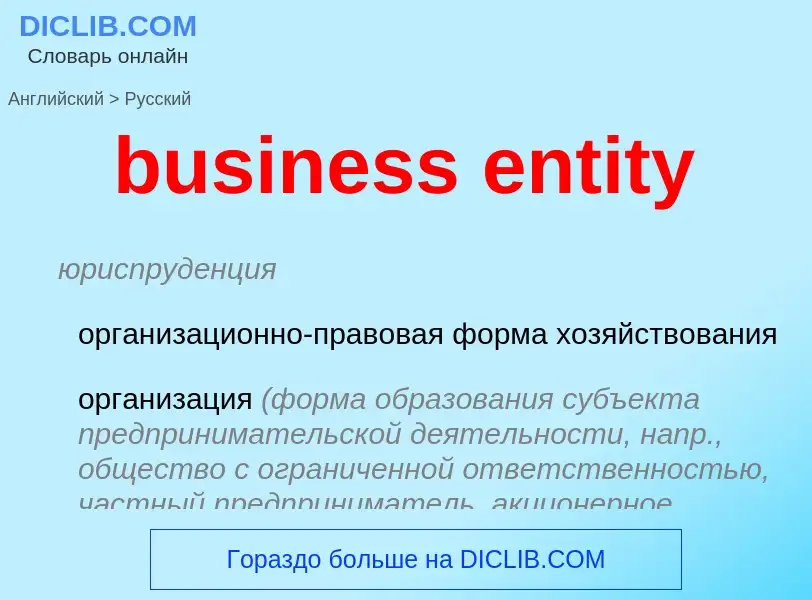Translation and analysis of words by ChatGPT artificial intelligence
On this page you can get a detailed analysis of a word or phrase, produced by the best artificial intelligence technology to date:
- how the word is used
- frequency of use
- it is used more often in oral or written speech
- word translation options
- usage examples (several phrases with translation)
- etymology
business entity - translation to English
юриспруденция
организационно-правовая форма хозяйствования
организация (форма образования субъекта предпринимательской деятельности, напр., общество с ограниченной ответственностью, частный предприниматель, акционерное общество, кооператив и т. п.)
управление
фирма
компания
коммерческая организация
хозяйственная единица (юридическое лицо, занимающееся экономической деятельностью ради получения прибыли)
синоним
Definition
Wikipedia
In law, a legal person is any person or 'thing' (less ambiguously, any legal entity) that can do the things a human person is usually able to do in law – such as enter into contracts, sue and be sued, own property, and so on. The reason for the term "legal person" is that some legal persons are not people: companies and corporations are "persons" legally speaking (they can legally do most of the things an ordinary person can do), but they are not people in a literal sense (human beings).
There are therefore two kinds of legal entities: human and non-human. In law, a human person is called a natural person (sometimes also a physical person), and a non-human person is called a juridical person (sometimes also a juridic, juristic, artificial, legal, or fictitious person, Latin: persona ficta).
Juridical persons are entities such as corporations, firms (in some jurisdictions), and many government agencies. They are treated in law as if they were persons.
While natural persons acquire legal personality "naturally", simply by being born (or before that, in some jurisdictions), juridical persons must have legal personality conferred on them by some "unnatural", legal process, and it is for this reason that they are sometimes called "artificial" persons. In the most common case (incorporating a business), legal personality is usually acquired by registration with a government agency set up for the purpose. In other cases it may be by primary legislation: an example is the Charity Commission in the UK. The United Nations Sustainable Development Goal 16 advocates for the provision of legal identity for all, including birth registration by 2030 as part of the 2030 Agenda.
As legal personality is a prerequisite to legal capacity (the ability of any legal person to amend – i.e. enter into, transfer, etc. – rights and obligations), it is a prerequisite for an international organization to be able to sign international treaties in its own name.
The term "legal person" can be ambiguous because it is often used as a synonym of terms that refer only to non-human legal entities, specifically in contradistinction to "natural person".

